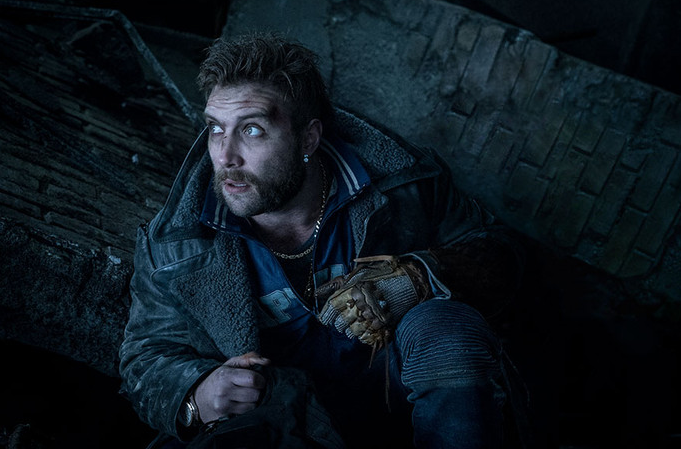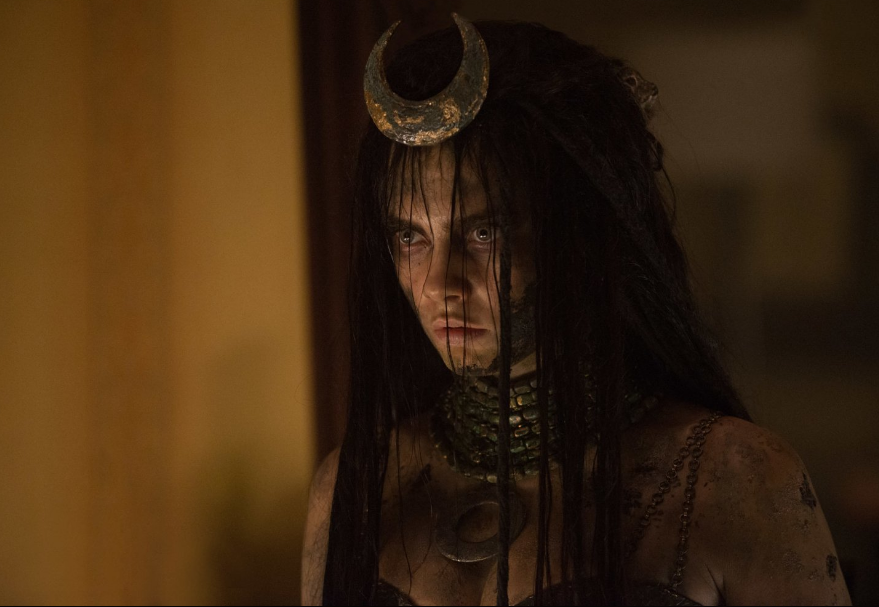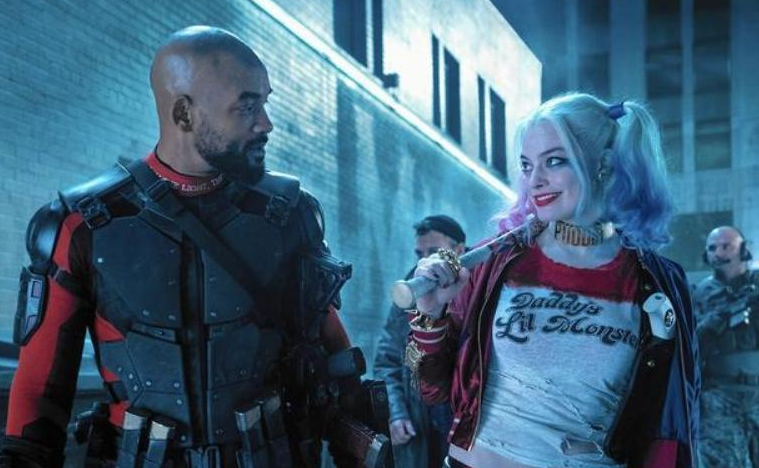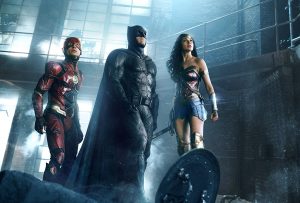The first twenty minutes of Suicide Squad make it abundantly clear that the film is doing everything it can not to be Batman v. Superman: Dawn of Justice. After an incredibly divisive reception for this year’s earlier entry into the DC Cinematic Universe, Suicide Squad seeks to set the DCCU on the right course for the future. The start of the film certainly accomplishes this: writer and director David Ayer gets the film going at a frantic pace, introducing the characters in a quickly-edited but visually pleasing montage. Where Batman v. Superman took about an hour to really get going, Suicide Squad gets moving from the first shot. The opening sets the tone for the rest of the film as Ayer assembles an energetic, if slightly disjointed, experience. Still, Suicide Squad takes enough risks and presents its audience a unique enough experience to make it one of the best superhero films of 2016.
The film’s biggest strength comes from its cast. Every actor is at the top of his or her game, and has an absolute blast with the script. The highlights include Will Smith as Deadshot, whose interactions with Rick Flag (Joel Kinnaman) serve as the film’s moral center, and Smith gets some great one liners to deliver with relish. Viola Davis plays the no-nonsense Amanda Waller who oscillates between hero and villain, and Jay Hernandez is impressive as El Diablo, whose tragic backstory immediately makes him the most relatable character. The film clocks in at a lean two hours, and some of the characters feel stuffed in, but the actors do more than a competent job of taking advantage of every moment of screen time. A perfect example of this is Jai Courtney’s Captain Boomerang. The character gets a minimal amount of development, but the typically bland Courtney gives an electric performance. He gets some of the funniest moments in the movie, and his over-the-top attitude helps deconstruct the ideals of heroism that the film consistently explores.


Jai Courtney as Captain Boomerang. Photo courtesy of IMDb
It would be remiss to discuss the film and not mention Margot Robbie’s portrayal of Harley Quinn. Robbie gives the best performance in the film and owns the character from the start. Her relationship with Jared Leto’s Joker, although not central to the story, is well fleshed-out and will make the audience yearn for more screen-time for both characters. For the amount of hype and publicity Jared Leto received as the Joker, he isn’t really in the film enough to leave too much of an impact, positive or negative. His Joker certainly is different than previous incarnations, but it feels like a role that mostly ended up on the cutting room floor. As for Harley Quinn’s role, Robbie elevates the material given to her to avoid being written off as pure objectification. Admittedly, Ayer includes a few too many shots that linger on her outfit. She would feel like a figment of pure sexual objectification if she was nothing more than a token character. However, this could not be farther from the truth. Robbie steals every scene she is in, and she turns Quinn from a passive victim into an active member of the team. Her attractiveness is only a part of her character, and she certainly has enough great lines and moments to feel like the most important part of the film.
Indeed, what makes Suicide Squad such an intriguing film is how bizarre it is. The story is fairly simple. Although some of the twists are not very coherent, it still is serviceable. The villain, Cara Delevingne’s Enchantress, is underwhelming, but it seems as if this may have been Ayer’s intention. Having villains serving as the heroes of the story is not a novel idea, but no other film has taken the concept to the extreme that Suicide Squad does. The audience’s “heroes” are violent individuals who live in a violent world, and Ayer focuses on this idea by glorifying the film’s violence.
There are a myriad of scenes set to various quickly-paced rap songs that seem to linger on acts of violence. For example, an early scene involving Will Smith’s Deadshot showing off his skills with guns is set to Kanye West’s “Black Skinhead,” and at first glance it appears to blindly glorify action. But Ayer repeatedly demonstrates how brutality is the only thing these characters know. A repeated theme in the film is the idea of weakness and how weakness affects each character. Waller uses various characters’ weaknesses to control them. She manipulates Flag by exploiting his romance with Enchantress, she pressures Deadshot by exploiting his relationship with his daughter, and she keeps Enchantress’ heart hostage in order to control her. Waller essentially becomes the main villain of the film as she manipulates the squad to her own ends. Furthermore, Enchantress tries to stop the squad by preying on their vulnerable pasts, and a certain character chooses to conquer his regret in the final battle to save the squad. (To say more would be too much of a spoiler.) Violence is what this group of villains know, and they all turn to violence in order to regain control over the world. This idea is not always executed flawlessly in the film, but it certainly presents some very interesting questions.


Cara Delevingne as Enchantress. Photo courtesy of IMDb
There certainly are parts where Suicide Squad feels like a confused film. After hearing about some behind the scenes issues, it would make sense that these creative clashes would derail the film. Fortunately, the struggle between being humorous and being dark actually improves the experience because it creates a superhero film that is not quite like anything else audiences have seen before. There are dark and disturbing scenes mixed in with some laugh-out-loud worthy moments. It is undoubtedly divisive, but the film is certainly memorable in its bizarreness. Audiences will leave the theater desperate to see more of Robbie’s Harley Quinn, Jared Leto’s Joker, and even Courtney’s Captain Boomerang. Given the pressure on the film and the critical trouncing Batman v. Superman received, it is impressive that Ayer was able to make a film that both hints towards a larger cinematic universe (Batman and another member of the Justice League both cameo, and stay through the credits!) and stands on its own. Suicide Squad will probably end up being just as polarizing as Batman v. Superman, but its memorable characters and sense of humor prove that DC is doing something right.





